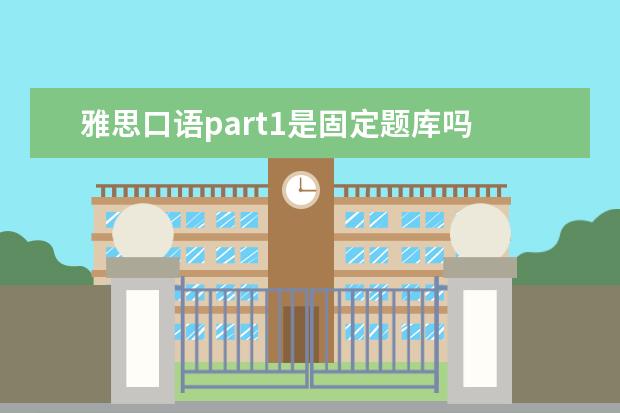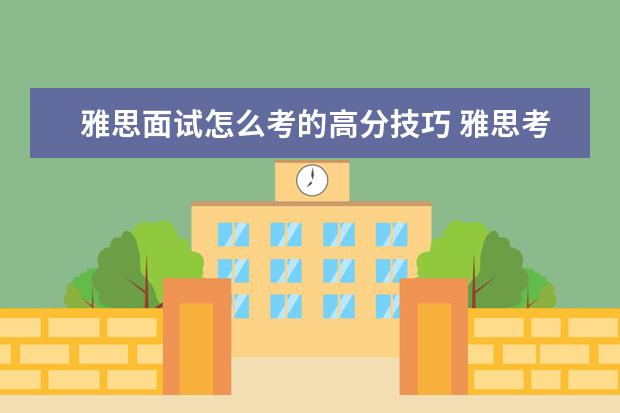当前城市:淄博[切换]
- 手机雅思无忧

扫码登录
雅思考试主要是通过对考生听、说、读、写四个方面英语能力的考核,综合测评考生的英语沟通运用能力,实现“沟通为本”的考试理念。对于雅思考生来说,也有很多考试难点和政策盲区需要帮助解答。今天雅思无忧网小编准备了雅思口语part1是固定题库吗 雅思考官教你雅思口语PART1考试技巧,希望通过文章来解决雅思考生这方面的疑难问题,敬请关注。
环球教育老师为同学们带来雅思口语变题季口语提分攻略如下,希望对您的备考有所帮助~
雅思口语考试学生都了解每一年1、5、9月是雅思口语考试的变题季,实际上学生们无需过度担忧,接下来我们一起学习雅思口语变题季口语提分攻略:
最先,Part One考题只不过就是说两层面难题。其一,是本人的基本信息。对这种问题自然轻轻松松。其二,就是说一些衣食住行附蔽陪近的话题讨论,只能极少数的丰富性话题讨论,才必须大伙儿在临考提早关心备考一下。
小编提示大伙儿,下列好多个话题讨论:Name, hometown, study or work, accommodation, free time是长期出现在试题之中,因此考生们一定要好好地提前准备。除开这五个基本的不可以再基本的话题讨论,还有一个话题讨论必须大伙儿留意:weather,这一话题讨论也十分基本。
除此之外,针对上一考期的英语口语“新题”,小编建议大伙儿也一定要了解一下,如Snack, being in a hurry, social networking, staying up late, 在接下去的考期之中还应当最多多的留意。
下面针对变题季,小编为大家列了一些话题,它们都有在新题库中出现的可能:Concentration 近几个考季经常出现在题库当中, 算是一个老生常谈的话题了,没太高的度系数, 只需要大家知道什么情况你可以集中注意力, 什么东西可以分散你的注意力等。
Patience 你是一个有耐心的人吗?觉得耐心重要吗?上次失去耐心是什么时候? Wedding 参加过婚礼吗?参加谁的都可以,不一定非得是自己的。婚礼的时候,人们都干嘛?送什么礼物?上次参加谁的婚礼什么时候?问来问去还是时态。还有一些话题,环球教育口语单项班老师就不在此一一列举了。
最后,应对口语变题季,小编要提醒大家那些“老题换新颜“的一类话题,像音乐、公共交通等。它们在新的题库中,很可能以一个新的面目出现。
不知道以上内容能否对您的雅思备考有些许帮助,如有雅思备考相关问题可以在评论区交流讨论~~看见后第一时间为同学们解答疑问,希望同学们都可以取得理想的雅思分数~
环球教育秉持教育成就未来的理念,专注于为中国学子提供优质的出国语言培训及配套服务。环球教育在教学中液并数采用“九步闭环法”,帮助学生快速提升学习效能,同时提供优质的课后服务,跟进学生学习进程,为优质教学提供坚强的保障。目前,环球教育北京学校已构建了包含语言培训、出国咨询、国际课程、闹首游学考察、在线课程等在内的一站式服务教育生态圈。相关问题可在线免费咨询,或拨打免费热线400-616-8800~~
雅思口语part1和part3的区别如下:
雅思敏唯口语part1和part3的区别在哪里?
一、雅思口语part1和part3的相同点:
1. 都是Conversation的考试性质,即一问一答。
2. 都没有思考时间。在考官问完问题后,考生应该直接给出答案。
3. 考试时间均为 3-4 分钟
二、雅思口语part1和part3的不同点:
1. Part 3 的问题难度远远高于Part 1的问题。Part 1的问题与考生的生活息息相关,而Part 3的桥穗培问题与你拿到的Part 2话题相关,且领域更广,包括经济,教育,环境保护等等。
2. 虽然考试时间一样,但Part 1部族闷分考官会问9-12个问题,而Part 3考官只会问4-6个问题。这就需要我们在Part 3上给出更长的答案。
以上就是雅思无忧网为您准备的雅思口语part1是固定题库吗 雅思考官教你雅思口语PART1考试技巧全部内容。访问雅思无忧网(https://www.yasi.cn/),了解更多雅思考试新消息,新动态。
雅思培训 雅思口语part1模板技巧 雅思考官教你雅思口语PART1考试技巧
雅思口语part1模板技巧 雅思考官教你雅思口语PART1考试技巧
雅思考试主要是通过对考生听、说、读、写四个方面英语能力的考核,综合测评考生的英语沟通运用能力,实现“
2023年09月10日 06:06 英雅思口语part1题库 雅思考官教你雅思口语PART1考试技巧
英雅思口语part1题库 雅思考官教你雅思口语PART1考试技巧
雅思考试主要是通过对考生听、说、读、写四个方面英语能力的考核,综合测评考生的英语沟通运用能力,实现“
2023年09月10日 22:03 雅思口语part1题库修理东西 雅思考官教你雅思口语PART1考试技巧
雅思口语part1题库修理东西 雅思考官教你雅思口语PART1考试技巧
雅思考试主要是通过对考生听、说、读、写四个方面英语能力的考核,综合测评考生的英语沟通运用能力,实现“
2023年09月11日 01:06 雅思口语part1只从题库抽吗 雅思考官教你雅思口语PART1考试技巧
雅思口语part1只从题库抽吗 雅思考官教你雅思口语PART1考试技巧
雅思考试主要是通过对考生听、说、读、写四个方面英语能力的考核,综合测评考生的英语沟通运用能力,实现“
2023年09月11日 04:42 雅思口语题库 part1 雅思考官教你雅思口语PART1考试技巧
雅思口语题库 part1 雅思考官教你雅思口语PART1考试技巧
雅思考试主要是通过对考生听、说、读、写四个方面英语能力的考核,综合测评考生的英语沟通运用能力,实现“
2023年09月13日 13:57 雅思口语part1考试技巧 雅思考官教你雅思口语PART1考试技巧
雅思口语part1考试技巧 雅思考官教你雅思口语PART1考试技巧
雅思考试主要是通过对考生听、说、读、写四个方面英语能力的考核,综合测评考生的英语沟通运用能力,实现“
2023年09月14日 14:06 雅思口语part1真题分析 雅思考官教你雅思口语PART1考试技巧
雅思口语part1真题分析 雅思考官教你雅思口语PART1考试技巧
雅思考试主要是通过对考生听、说、读、写四个方面英语能力的考核,综合测评考生的英语沟通运用能力,实现“
2023年09月20日 13:42 4月雅思口语part1考试预测 雅思考官教你雅思口语PART1考试技巧
4月雅思口语part1考试预测 雅思考官教你雅思口语PART1考试技巧
雅思考官教你雅思口语PART1考试技巧上海环球青藤为大家带来一份由雅思考官写的雅思口语part1考试
2024年12月01日 22:57 雅思考官教你雅思口语PART1考试技巧
雅思考官教你雅思口语PART1考试技巧
Part 1 is generally something about you, where you
2021年12月02日 06:23 雅思面试怎么考的高分技巧 雅思考官教你雅思口语PART1考试技巧
雅思面试怎么考的高分技巧 雅思考官教你雅思口语PART1考试技巧
雅思考试主要是通过对考生听、说、读、写四个方面英语能力的考核,综合测评考生的英语沟通运用能力,实现“
2023年08月06日 07:25